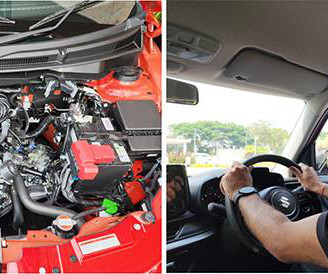We have made All New Swift 100 kg lighter than its 1st gen: CTO, Maruti Suzuki | Autocar Professional
Baua Electric
MAY 24, 2024
Since the launch of Swift in 2005, we have changed the powertrain and platform of the brand twice till date. Highlighting a massive reduction of 47% in carbon emissions, Raman said that debut model used to emit 147 g CO2 per km, which has now come down to 95.60 The fuel efficiency of the new model has improved by 50%.
















Let's personalize your content